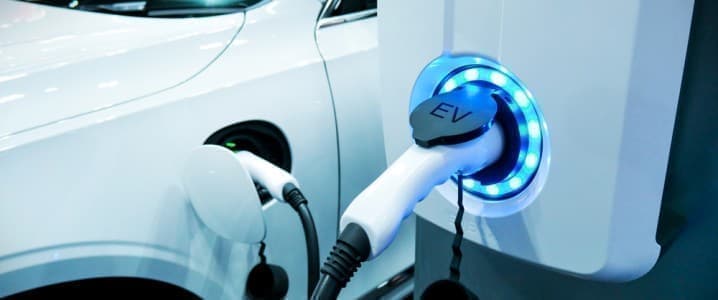- Chinese automakers like BYD, Great Wall, and Chery are expanding production in Brazil and Mexico to secure a dominant position in Latin America’s EV market.
- Brazil’s government is encouraging local production, while Chinese firms adapt by producing ethanol-hybrid vehicles to meet regional fuel standards.
- Despite trade war uncertainty impacting nearshoring to the U.S., Chinese EV companies are strengthening their foothold in Latin America’s two largest automotive markets.

As China continues to grow its electric vehicle (EV) industry, it has expanded to several new markets in recent years, opening multiple production and assembly plants across Latin America. Chinese EV companies now offer a wide variety of EV models at competitive prices, making them well-suited to the Latin American market, with a growing uptake of Chinese EVs being seen in Brazil and Mexico. However, while its Latin America prospects might be good, developing successful nearshoring activities for the United States market is less certain due to the ongoing trade war.
The Chinese EV production capacity has boomed in recent years thanks to favourable national policies, financial incentives, and easy access to parts. Chinese automakers are now projected to contribute 30 percent of global car sales by 2030, up from 21 percent in 2024.
China is in the fortunate position of controlling most of the EV component supply chain, from lithium to semiconductors and batteries. This has led to the launch of multiple Chinese EV-makers that can produce competitive and affordable vehicles. As these companies expand beyond the Asian market, one of the places where they are doing especially well is Latin America.
The Chinese EV manufacturer Build Your Dreams (BYD) has quickly risen to compete with several EV makers from around the globe, including Tesla, thanks to its advanced capabilities. BYD promises to offer consumers a full charge in just 5 minutes, similar to the time it takes to pump petrol, as well as offers ranges like those of high-end American and European EVs at a lower cost.
As BYD and other firms, such as Great Wall Motor and SAIC, look to expand, they are developing operations in Europe and Latin America. Great Wall Motor recently took over a former Mercedes-Benz plant in the industrial town of Iracemápolis, near São Paulo in Brazil, after the automaker suspended activities in 2021 due to a decline in luxury car sales. Meanwhile, BYD took over a Ford facility in Brazil following several years of poor sales, and Chery joined forces with the Brazilian company Caoa to produce cars in the central state of Goias.
Natalie Unterstell, the president of the Rio de Janeiro-based climate research and advocacy organisation Talanoa Institute, said, “For the first time in decades, we’re seeing a real challenge to the dominance of American and European brands, not just in terms of market share, but in shaping the future of mobility.”
Brazil is the world’s sixth-largest car market. In recent years, the government has encouraged Chinese automakers to set up shop in Brazil to avoid becoming overly reliant on EV imports alone. It aims to make Brazil part of the value chain, as EV uptake in Latin America expands, which is encouraged by import duties on vehicles not produced domestically. This has come as a shock to the Asian, European, and American automakers that have long dominated the Brazilian market.
Some players in the industry criticise the Chinese automakers for flooding the market with impossibly low-priced vehicles. While others accuse Chinese automakers of assembling cars with components imported from China rather than using regional supply chains.
To adapt to the Brazilian market, Chinese automakers are producing hybrid vehicles that run partly on a gas-ethanol blend – made from sugar cane – and partly on batteries, to make the most of Brazil’s strong ethanol industry and adhere to government gasoline standards. Marcio Renato Alfonso, Great Wall’s director of research and development for Brazil, explained, “We need to produce what customers are looking for… high technology with an affordable price.»
Chinese automakers have also shown an interest in Mexico, which has a strong history of automaking, for nearshoring activities. While the ongoing trade war between the U.S. and both China and Mexico means greater uncertainty for nearshoring, Chinese companies still have significant potential to solidify their regional market by developing operations in Latin America’s two biggest markets.
In 2023, China was the leading car supplier to Mexico, with vehicle exports worth $4.6 billion, according to the Mexican Ministry of Economy. Mexico’s free trade agreement with the U.S. and Canada also opened other markets, before the uncertainty of the current trade war. In 2023, BYD announced plans to develop a plant in Mexico capable of producing around 150,000 vehicles a year and generating 10,000 jobs. However, in July, the EV maker said it had cancelled plans following months of trade uncertainty.
While nearshoring activities now appear less certain, the launch of operations in Brazil and Mexico, which both have strong automaking capabilities and well-established regional supply chains, is helping Chinese EV makers to gain a solid foothold in the Latin American market. Several Chinese newcomers are rapidly rising to compete with reputable Asian, European, and American automakers by offering high-quality vehicles at a low cost.
By Felicity Bradstock for Oilprice.com
More Top Reads From Oilprice.com
Felicity Bradstock
Felicity Bradstock is a freelance writer specialising in Energy and Finance. She has a Master’s in International Development from the University of Birmingham, UK.










